SDG3 Newsletter: LGBTQ+ Health and Wellbeing
Published in Social Sciences, Sustainability, and Public Health
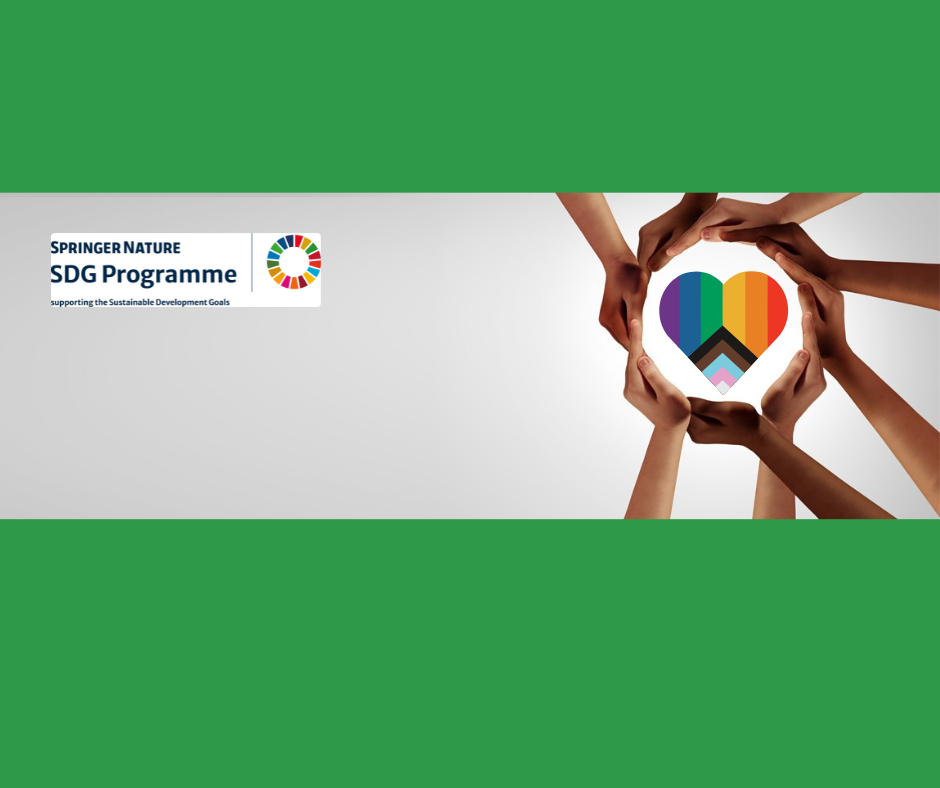
This SDG 3 Newsletter champions SDG targets 3.7 & 3.8
Want to test your knowledge? Find 5 quiz questions dotted throughout the newsletter- read the blogs to find the answers! Comment your answers below this newsletter for the chance to be named as a top scorer in the August SDG3 Newsletter. 📢
Use these links to navigate to a section:
- Discover the new therapy programme for sexual and gender minorities
- Behind the paper, ‘Transphobia in the United Kingdom: a public health crisis’
- New collection on 'Advancing Transgender Health Equity'
- Podcast and Q&A: Black LGBTQIA+ Voices in the Fight for Health Equity
- About the book, HIV/AIDS in Memory, Culture and Society
- The mission of IJIR: Your Sexual Medicine Journal and the 'Transgender Care' collection
- Q&A on trans people’s access to healthcare
- Sex differences research is important! Find out why
In other news…
.jpg) Discover the new therapy programme for sexual and gender minorities
Discover the new therapy programme for sexual and gender minorities
Read this blog about a new therapeutic programme for sexual and gender minorities. In The PRISMAS Group Therapy Handbook, Cardoso and Braga explain how PRISMAS group therapy integrates affirmative and schema therapy.
🏳️🌈 1. What number of therapeutic sessions are covered in the book?
Behind the paper, 'Transphobia in the United Kingdom: a public health crisis'
Don’t miss this Behind the Paper blog and the call for action by authors of the recently-published article, ‘Transphobia in the United Kingdom: a public health crisis.’
🏳️🌈 2. Can you name two things that need to change to combat transphobia in public health?
.jpg)
New Collection on 'Advancing Transgender Health Equity'
Check out this deep-dive blog about the International Journal for Equity in Health’s new article collection: ‘Advancing Transgender Health Equity’. The collection explores the multifaceted health disparities faced by transgender individuals worldwide.
Podcast and Q&A: Black LGBTQIA+ Voices in the Fight for Health Equity
In this must-listen podcast, Chima Mmeje and Tommy Gough talk to India Sapsed-Foster about their personal experiences as Black queer individuals, discussing barriers to healthcare and mental health. Read the Q&A where they continue the conversation.
🏳️🌈 3. What is one initiative Chima would like to see integrated into UK public health services so that they better support Black LGBTQ+ individuals?
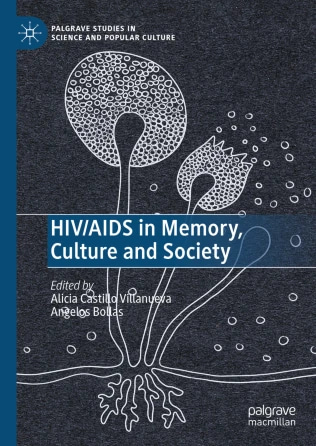
About the book HIV/AIDS in Memory, Culture and Society
Discover in this blog how the book HIV/AIDS in Memory, Culture and Society sheds light on the cultural legacy of the epidemic and amplifies the voices of marginalised communities through media, memory, and advocacy for health equity.
🏳️🌈 4. What institution reported the first cases of what would later become known as AIDS?
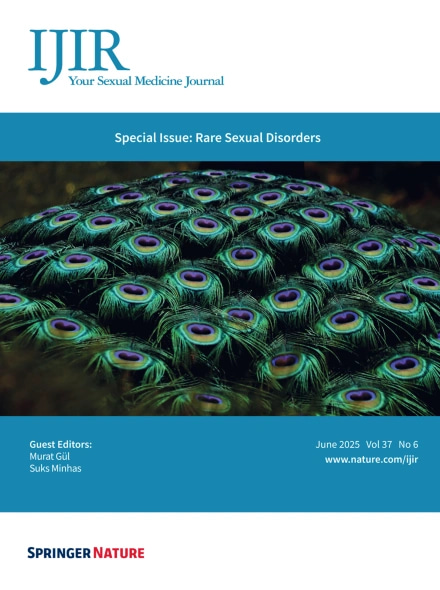 The mission of IJIR: Your Sexual Medicine Journal and the 'Transgender Care' collection
The mission of IJIR: Your Sexual Medicine Journal and the 'Transgender Care' collection
Read this blog to learn about the mission of IJIR: Your Sexual Medicine Journal, which aims to be a journal for all sexes and genders. The collection Transgender Care discusses the vast changes seen in the field over the last decade, and includes contributors from social sciences, psychology and medical disciplines.
Q&A on trans people's access to healthcare
Read this Q&A in Nature Communications. Dr Kamilla Kamaruddin champions access to quality healthcare for trans people.
Sex differences research is important! Find out why
This must-read blog is a Q&A with Dr Sofia Ahmed, the President of the Organization for the Study of Sex Differences, of which Biology of Sex Differences is the affiliated journal. This blog was written for Sex Differences in Health Awareness Day 2025.
🏳️🌈 5. How does Dr Ahmed distinguish sex and gender?
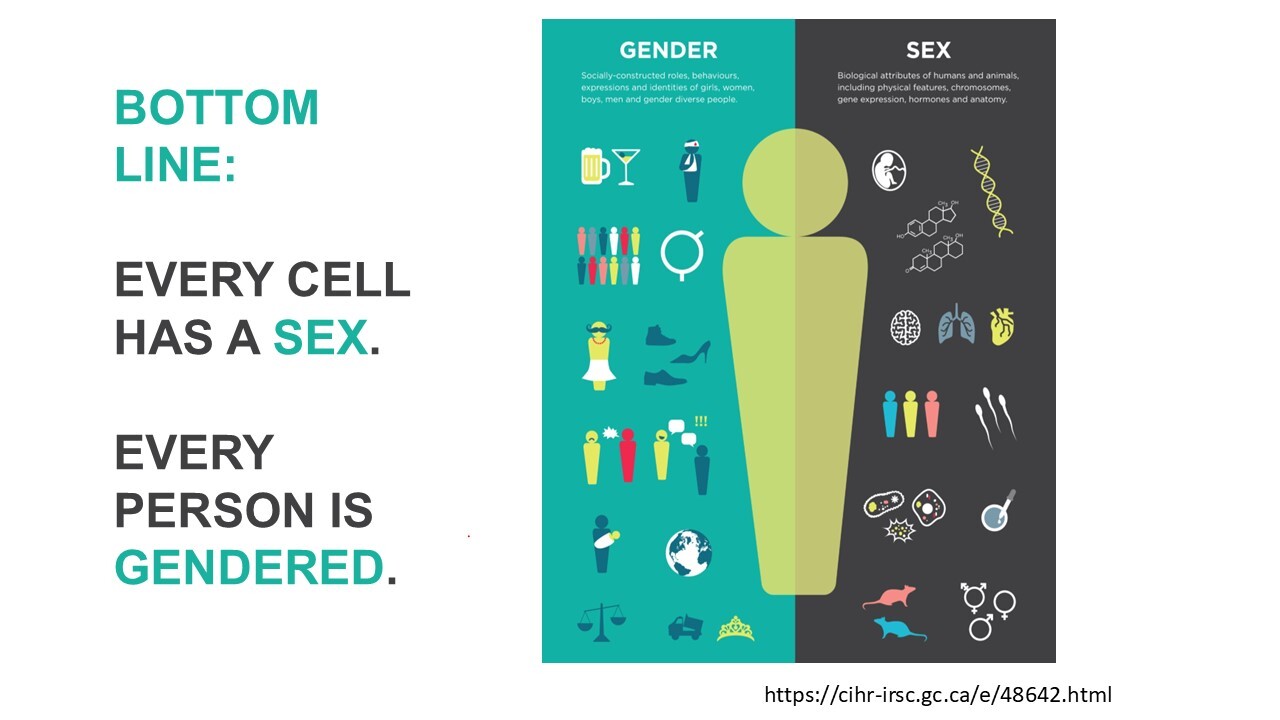
In other news…
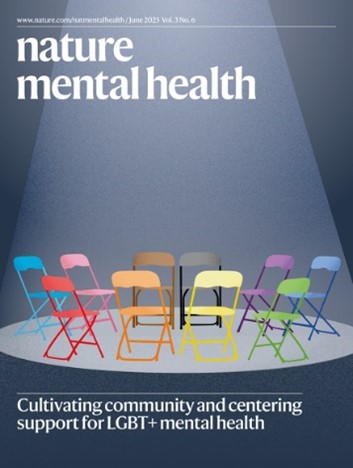
World Wellbeing Week
Today, World Wellbeing Week draws to a close. I hope you managed to do something that helped your wellbeing, whether that was a walk, meeting friends, or enjoying a hobby. The Springer Nature Wellbeing Champions organised for colleagues to focus on breathwork and art with Jayne Wilton.
Nature Mental Health: June issue
See Nature Mental Health’s June issue, which presents a Q&A and research into LGBT+ mental health. Cover design by Marina Spence.
Get involved!
Thank you to everyone who contributed to this newsletter.* If you would like to be involved with our SDG 3 initiatives, contact me. Follow me, Alice Coe, on Research Communities to be notified of future SDG 3 newsletters.
*With special thanks to: Virginia Mercer, Dr Dean Connolly, Dr Alison Berner, Rita Moreira, Chima Mmeje, Tommy Gough, India Sapsed-Foster, Yasmin Wilczur, Dr Sofia Ahmed, Janet Kim, Lucy Kidwell & Katharine Barnes
Now, let's see who gets 5 out of 5 quiz questions correct...!
Follow the Topic
-
International Journal for Equity in Health

This journal presents evidence relevant to the search for, and attainment of, equity in health across and within countries and publishes research which improves the understanding of issues that influence the distribution of health and healthcare within populations.
Your space to connect: The Psychedelics Hub
A new Communities’ space to connect, collaborate, and explore research on Psychotherapy, Clinical Psychology, and Neuroscience!
Continue reading announcementRelated Collections
With Collections, you can get published faster and increase your visibility.
Racism and Health
The ongoing advancement of our understanding of how racism impacts health - both directly and structurally - is crucial for addressing the deep-rooted health inequities that persist globally. Structural racism shapes health outcomes among racialized populations, contributing to inequities in healthcare access and quality, and impacting social, political, or environmental determinants of health. Existing research also connects direct and visible manifestations of racism, such as major and everyday discrimination, to negative health outcomes. At the same time, racism does not operate in isolation. A growing body of research shows how it intersects with other systems of oppression—such as classism and patriarchy—and with broader social determinants of health, producing compounded and context-specific inequities. An intersectional lens is therefore essential to understand how overlapping structures of power and exclusion shape health and healthcare experiences. These insights are essential in conducting rigorous and thorough health research, guiding anti-racist health policy, and ultimately, ensuring equitable health for all.
Looking forward, research holds the potential to develop new methodologies and indices and unveil complexities in how racism manifests within healthcare systems and societal structures. By deepening our collective understanding, we can develop more effective interventions that target the root causes of health inequities.
We invite researchers to contribute to this special Collection on Racism and Health, focusing on advancing our understanding and addressing health inequities. Topics of interest include but are not limited to:
- Racism as a structural determinant of health
- Racism as a direct determinant of health
- Racialized health outcomes in different populations
- Intersectionality and inequities in health, healthcare access and quality
- Nexuses between social, political, and environmental determinants of health and systemic discrimination
- Anti-racist health policy frameworks and systems
- Impact of racism on mental health
- Health inequities in reproductive, maternal, and child health
- Obstetric and reproductive violence
- Community-based interventions for equitable health
- Decolonizing health research and global health epistemologies
We strongly encourage contributions from racialized scholars and authors with lived experience or expertise in addressing systemic discrimination in health research.
This Collection supports and amplifies research related to SDG 3, Good Health and Well-Being and SDG 10, Reduced Inequalities.
All submissions in this collection undergo the journal’s standard peer review process. Similarly, all manuscripts authored by a Guest Editor(s) will be handled by the Editor-in-Chief. As an open access publication, this journal levies an article processing fee (details here). We recognize that many key stakeholders may not have access to such resources and are committed to supporting participation in this issue wherever resources are a barrier. For more information about what support may be available, please visit OA funding and support, or email OAfundingpolicy@springernature.com or the Editor-in-Chief.
Publishing Model: Open Access
Deadline: Aug 14, 2026
Mental Health Inequities in Crisis: Insights from South-East Asia
The importance of advancing our collective understanding of mental health disparities during extraordinary crises, particularly in South-East Asia, cannot be overstated. As the region faces a multitude of challenges—ranging from natural disasters to public health emergencies—there is a pressing need to explore the variations in mental health impacts across different communities. Significant strides have been made in this area, including the identification of specific risk factors, the implementation of culturally sensitive interventions, and the recognition of mental health as a critical component of overall well-being. However, much work remains to be done. Future research has the potential to uncover new insights into the social determinants of mental health, enhance intervention strategies, and inform policies that promote equity. By deepening our understanding of these issues, we can better address the unique mental health challenges faced by vulnerable populations in the region.
We welcome all article types, including original research, reviews, meta-analyses, and perspectives.
We invite researchers to contribute to this special Collection. Topics of interest include but are not limited to:
-Socioeconomic & Geographic Disparities in Mental Health Access
-Community-Level Heterogeneity in Mental Health Outcomes
-Social Determinants of Mental Health in Crisis Contexts
-Culturally Adapted Mental Health Interventions
-Youth Mental Health in Crisis: Vulnerability and Resilience
-Gender and Mental Health: Differential Impacts and Responses
-Stigma, Barriers, and Facilitators to Mental Health Care
-Digital Mental Health Innovations in Low-Resource Settings
This Collection supports and amplifies research related to SDG 3, Good Health and Well-Being.
All submissions in this collection undergo the journal’s standard peer review process. Similarly, all manuscripts authored by a Guest Editor(s) will be handled by the Editor-in-Chief. As an open access publication, this journal levies an article processing fee (details here). We recognize that many key stakeholders may not have access to such resources and are committed to supporting participation in this issue wherever resources are a barrier. For more information about what support may be available, please visit OA funding and support, or email OAfundingpolicy@springernature.com or the Editor-in-Chief.
Publishing Model: Open Access
Deadline: Jul 30, 2026
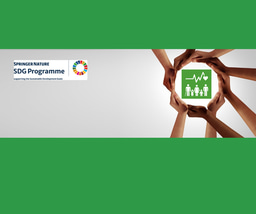

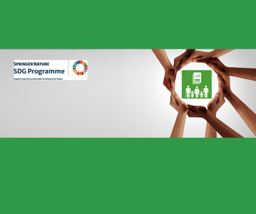

Please sign in or register for FREE
If you are a registered user on Research Communities by Springer Nature, please sign in
Didn't ace the quiz, but what a great newsletter, Alice!
Thanks, Rita! Lots to report on in this newsletter. The theme of the August newsletter will be "Access for All," if anyone is interested in contributing. Better luck next time with the quiz...! 😊